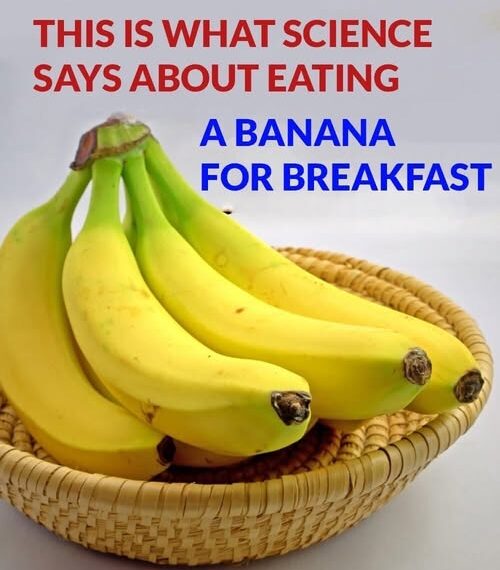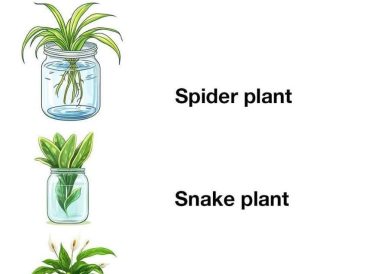Bananas are one of the most popular and convenient fruits in the world. They’re quick to grab, easy to peel, and naturally sweet — making them an ideal breakfast choice for millions. But is starting your day with a banana actually good for your health?
Let’s explore what science really says about eating bananas for breakfast — the benefits, the drawbacks, and how to get the most out of this tropical fruit.
🍌 What Makes Bananas a Popular Breakfast Food?
- Convenience: No prep, no mess.
- Taste: Naturally sweet, satisfying.
- Nutritional Profile: Rich in potassium, vitamin B6, vitamin C, fiber, and antioxidants.
- Easily digestible: Great for those with sensitive stomachs or little time to eat.
But does the science back up the idea of eating a banana first thing in the morning?
✅ Scientific Benefits of Eating a Banana for Breakfast
1. Excellent Source of Energy
Bananas are composed mainly of carbohydrates, particularly natural sugars like fructose, glucose, and sucrose. These are absorbed quickly, providing an immediate energy boost — ideal for the morning when your body is transitioning from fasting.
🧪 A study published in the PLOS One journal showed that bananas performed as well as sports drinks in sustaining blood sugar and energy during endurance activities.
2. Rich in Potassium
One banana provides around 450 mg of potassium — about 10% of your daily needs. Potassium is essential for:
- Healthy heart function
- Blood pressure regulation
- Muscle and nerve function
According to the American Heart Association, potassium-rich diets can help control hypertension and reduce the risk of stroke.
3. Supports Digestion
Bananas are rich in dietary fiber (around 3 grams per medium banana). The pectin and resistant starch in unripe bananas act as prebiotics, feeding the good bacteria in your gut.
A 2017 review in Nutrients concluded that dietary fiber plays a crucial role in gut microbiota health, reducing inflammation and supporting overall wellness.
But Wait — There’s a Catch
Despite all the benefits, some nutritionists argue that eating only a banana for breakfast may not be the best idea.
Why?
- High in Sugar, Low in Protein and Fat
- Bananas have a high glycemic index, which means they can cause a quick spike in blood sugar followed by a crash.
- With no protein or healthy fat, they may leave you feeling hungry again within an hour.
- Not a Complete Breakfast
- A well-rounded breakfast should contain protein, fiber, and healthy fat to keep you full and provide long-lasting energy.
🍽️ Solution: Pair your banana with yogurt, nuts, eggs, or oatmeal for a balanced meal.
🧠 Cognitive Boost and Mood Regulation
Bananas contain tryptophan, an amino acid that helps the body produce serotonin, a neurotransmitter responsible for mood regulation.
- Vitamin B6 (abundant in bananas) helps convert tryptophan to serotonin, potentially reducing stress and enhancing mood.
A study in Psychosomatic Medicine linked diets high in tryptophan to improved mood and memory.
Do Bananas Help with Sleep Too?
Interestingly, while this article is about breakfast, it’s worth noting that bananas also contain magnesium and tryptophan, which may support better sleep. So whether you eat them in the morning or evening, they can support both energy and relaxation — depending on what you pair them with.
🔄 Best Ways to Eat Bananas for Breakfast
To make your banana breakfast more balanced, try:
- Banana + nut butter (peanut or almond): Adds protein and healthy fat
- Banana + Greek yogurt + granola: Combines fiber, probiotics, and protein
- Banana smoothie with spinach, chia seeds, and plant milk: Energy + nutrients
- Banana oatmeal with cinnamon and walnuts: Sustained fullness and heart health
🧬 Final Thoughts: What Science Says
Bananas are a nutritious and energy-boosting food — especially in the morning — but they’re not complete on their own. Science supports their role in a healthy diet, but to avoid energy crashes and promote satiety, it’s best to pair them with protein and fat.
So yes, eat that banana — but make it part of a balanced breakfast for maximum benefits.





